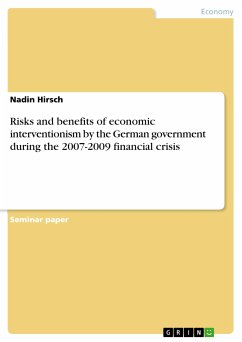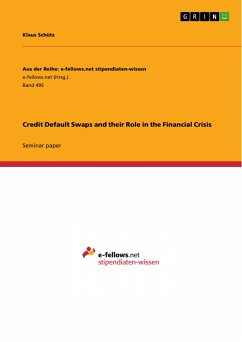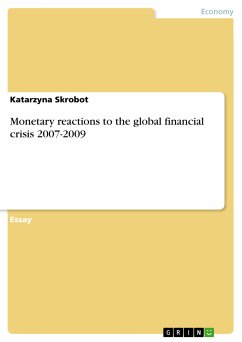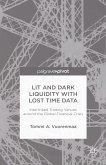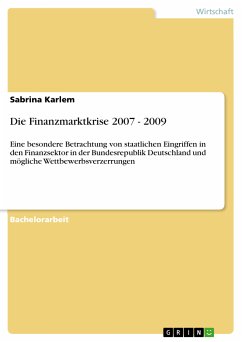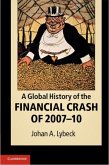Seminar paper from the year 2011 in the subject Economics - Finance, grade: 1,7, University of Applied Sciences Riedlingen, language: English, abstract: 1.Introduction The global financial crisis that became obvious in the summer of 2007, led to a severe economic crisis about one year later. It was mainly caused by the bankruptcy of “Lehman Brothers”, one of the largest US investment banks, which was forced to file for liquidation after suffering huge losses in the mortgage market and resulted in millions of additional unemployed all over the world, in both developing as well as highly developed countries. Within weeks the Dow Jones Index fell from over 11,000 to below 7,000 points while the German stock market index, DAX, fell from 7,500 to below 4,000 points. The apparent helplessness of economists at that time forced the German government to implement strong interventions in the economic market. This paper deals with the risks and benefits of interventionism during the 2007- 2009 financial crisis, using the example of Germany.
Bitte wählen Sie Ihr Anliegen aus.
Rechnungen
Retourenschein anfordern
Bestellstatus
Storno

